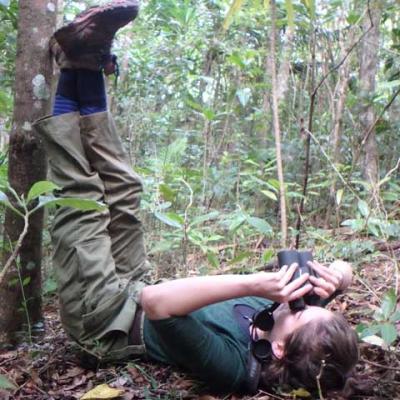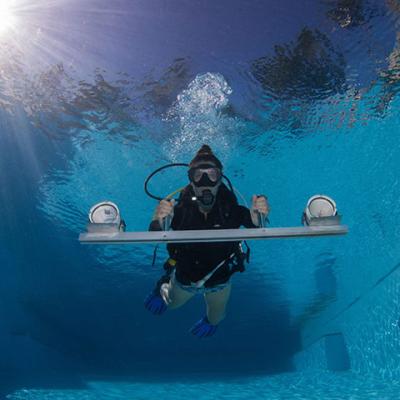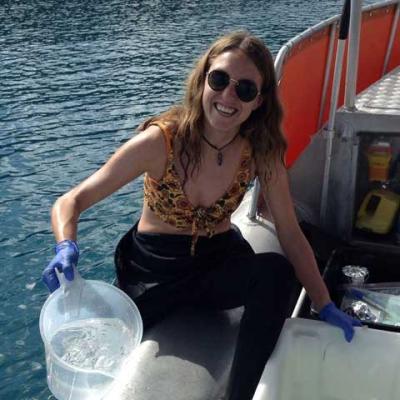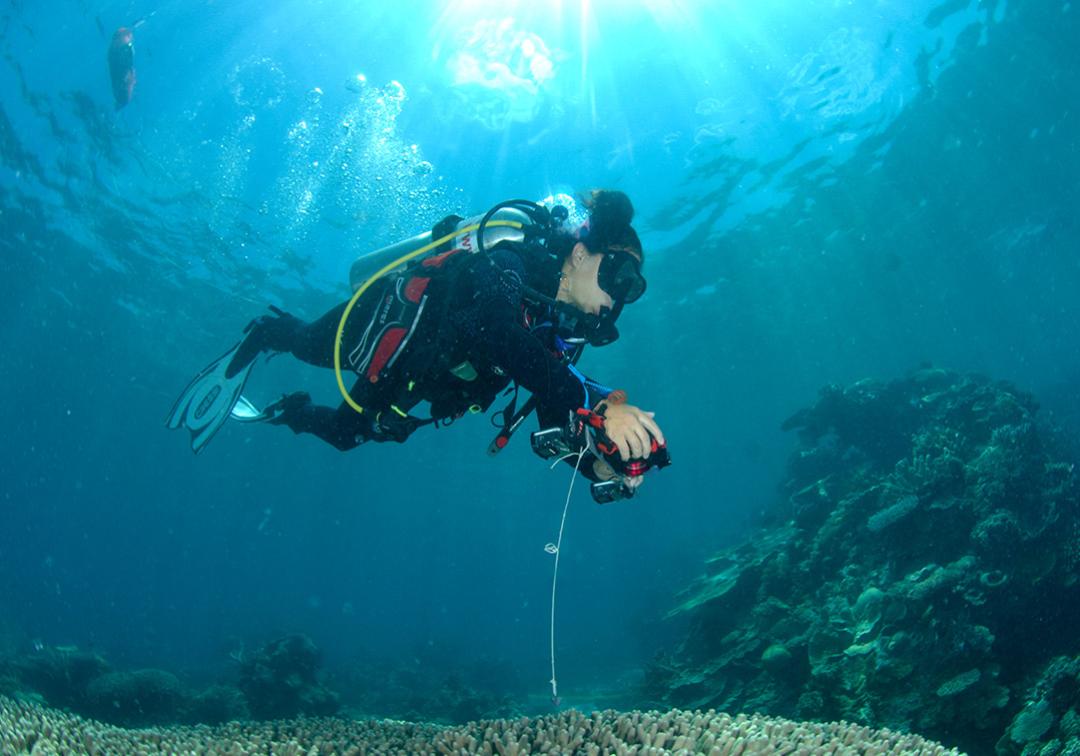
Bachelor of Science (Honours)
Overview
Open up pathways to further research, postgraduate study options and exciting career opportunities with an additional year of honours study.
Designed for science graduates, the Bachelor of Science (Honours) program offers the chance to undertake an independent research project in your area of interest.
Working closely with a researcher, you'll gain practical experience in designing and executing experiments or field studies, and analysing and visualising data in ways specific to your field of study.
Learn to communicate like a professional scientist as you produce your thesis and deliver oral presentations.
Graduate equipped with project management experience, allowing you to work independently in research roles across industry and government, or pursue a higher research degree.
Program highlights
- Tailor your studies to your interests and career goals with a flexible program.
- Work with a researcher to gain hands-on experience in experiments, data analysis and result presentation.
- Gain in-demand skills, including the ability to work independently.
Majors
Tailor your studies to suit your goals. This program offers these options:
- Anatomy
- Archaeological Science
- Biochemistry and Molecular Biology
- Bioinformatics
How you'll learn
Your learning experiences are designed to best suit the learning outcomes of the courses you choose.
- Research experience
- Laboratory work
- Fieldwork
What you'll study
At UQ, degrees are called 'programs' and subjects are called 'courses'. Here's a sample of the courses you could study in this program:
- Honours Research Project
- Research Methods
Career possibilities
Our programs prepare you for your first job and beyond. Depending on which major you choose, here are some of the careers you could be on your way to:
- Biopharmaceutical scientist
- Academic researcher
- Animal research scientist
- Research officer
- Clinical genetics scientist
- Marine research officer
- Environment and sustainability consultant
- Conservation researcher
- Data scientist
- Food technologist
Average annual salary range
Environmental Officer
seek.com.au
Average annual salary range
Data Scientist
seek.com.au
Events
See all events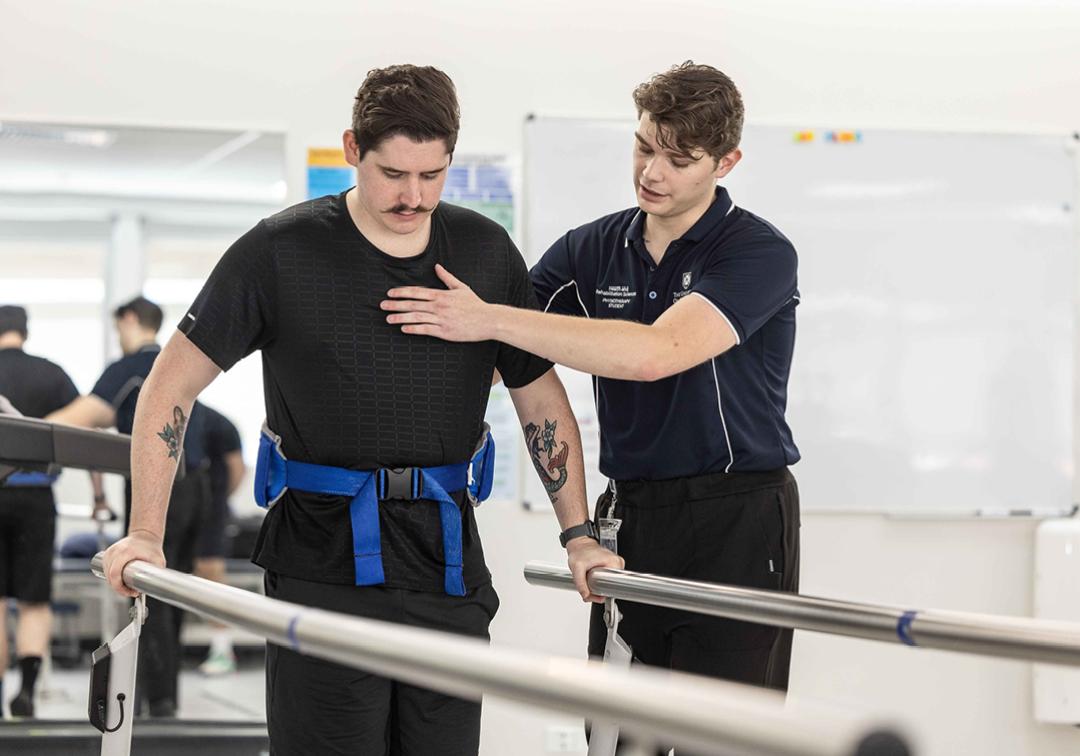
9 June
Master of Physiotherapy information webinar

29 June
Queensland Biology Winter School, Year 12

1 July
International Baccalaureate Research Skills Program
Stories
See all stories
Uni life
What's it really like to study science at UQ?
9-minute read
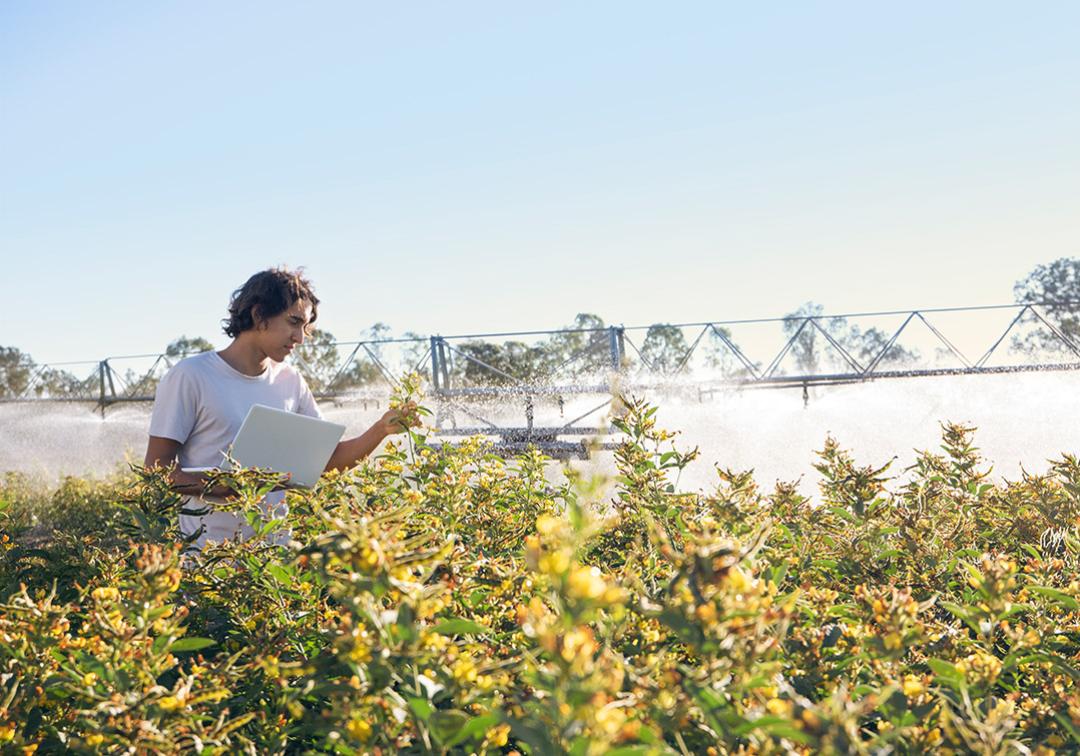
Careers
Career opportunities in agricultural science
4-minute read
Stories
See all stories
Uni life
What's it really like to study science at UQ?
9-minute read

Careers
Career opportunities in agricultural science
4-minute read
Entry requirements
Prerequisites
- a grade point average (GPA) of 4.0 on a 7-point scale, and
- a GPA of at least 4.5* for 8 units of courses at level 3 or higher relevant to the honours project, and
- have secured an honours project and supervisor, and
- satisfied any additional requirements set by the head of school.
Psychology field of study:UQ Bachelor of Science with:
- a grade point average (GPA) of 5.0 for level 2 and 3 courses in the Psychology extended major, and
- satisfied any additional requirements set by the head of school.
Prerequisites
- a grade point average (GPA) of 4.0 on a 7-point scale, and
- a GPA of at least 4.5* for 8 units of courses at level 3 or higher relevant to the honours project, and
- have secured an honours project and supervisor, and
- satisfied any additional requirements set by the head of school.
Psychology field of study:UQ Bachelor of Science with:
- a grade point average (GPA) of 5.0 for level 2 and 3 courses in the Psychology extended major, and
- satisfied any additional requirements set by the head of school.
English language requirements
IELTS overall 6.5; reading 6; writing 6; speaking 6; listening 6. For other English Language Proficiency Tests and Scores approved for UQ
TOEFL iBT (including Paper Edition) - Overall 87, listening 19, reading 19, writing 21 and speaking 19.
PTE Academic - Overall Score of 64 and 60 in all sub bands.
BE - A minimum overall grade of 4 plus a minimum grade of C in all macro skills.
CES - Overall 176 and 169 in all sub bands.
OET is not accepted.
There are other ways to meet the English language requirements. For some programs, additional conditions apply.
Student visas
International students who are accepted into full-time study in the Bachelor of Science (Honours) are eligible to apply for an Australian student visa (subclass 500).
There are a number of requirements you must satisfy before a visa is granted, including the Genuine Student (GS) requirement.
Fields of study
Fields of study
Tailor your studies to suit your goals. This program offers these options:
Fields of study
Tailor your studies to suit your goals. This program offers these options:
Fees and Scholarships
Indicative annual fee
Approximate yearly cost of tuition (16 units). Your fees will vary according to your selected courses and study load. Fees are reviewed each year and may increase.
$10,100
2026
Approximate yearly cost of tuition (16 units). Your fees will vary according to your study load. Fees are reviewed each year and may increase.
AUD $54,096
2026
Government assistance
Financial aid
As an international student, you might be eligible for financial aid – either from your home country, or from the Australian Government.
HECS-HELP
Domestic places in the Bachelor of Science (Honours) are Commonwealth supported, as long as you meet all Commonwealth supported place eligibility requirements.
This means the cost of your education is shared between you and the Australian Government. Instead of tuition fees, Commonwealth supported students pay what are called student contribution amounts.
If you have a Commonwealth supported place, you may also be eligible for HECS-HELP. This is an Australian Government loan scheme to assist eligible students with the cost of their student contribution amounts.
Centrelink support
The Australian Government offers a number of income-support payments to eligible Australian university students.
Scholarships
You may be eligible for more than 100 scholarships, including:
How to apply
Applying online
All international applications should be submitted to UQ. If you prefer, you can use an approved UQ agent near you.
The program code for the Bachelor of Science (Honours) is 2031.
Applying online
All domestic applications should be submitted to UQ.
The program code for the Bachelor of Science (Honours) is 2031.
Important dates
The closing date for this program is:
- To commence study in semester 2 - May 31 of the year of commencement.
- To commence study in semester 1 - November 30 of the previous year.
- There is an early closing date for Honours in Psychology, please refer to the school website for further information
Visa processing times vary. Apply and accept your offer as early as you can.
To learn more about UQ dates, including semester start dates, view the Academic Calendar.
Important dates
The closing date for this program is:
- Please note, the closing date for Honours can vary between Schools. Please refer to the relevant School website for further information.
- To commence study in Semester 1 - January 31 of the year of commencement.
- To commence study in Semester 2 - June 30 of the year of commencement.
- There is an early closing date for Honours in Psychology, please refer to the school website for further information
To learn more about UQ dates, including semester start dates, view the Academic Calendar.
Aboriginal and Torres Strait Islander applicants
For support with applying – or if you have any questions about university life – get in touch with our Aboriginal and Torres Strait Islander Studies (ATSIS) Unit.
Explore other programs
Express yourself. And your interest.
They say choosing a degree is hard, which is why we've made it easy. Register your interest and we'll send you everything you need to know about applying to UQ.

